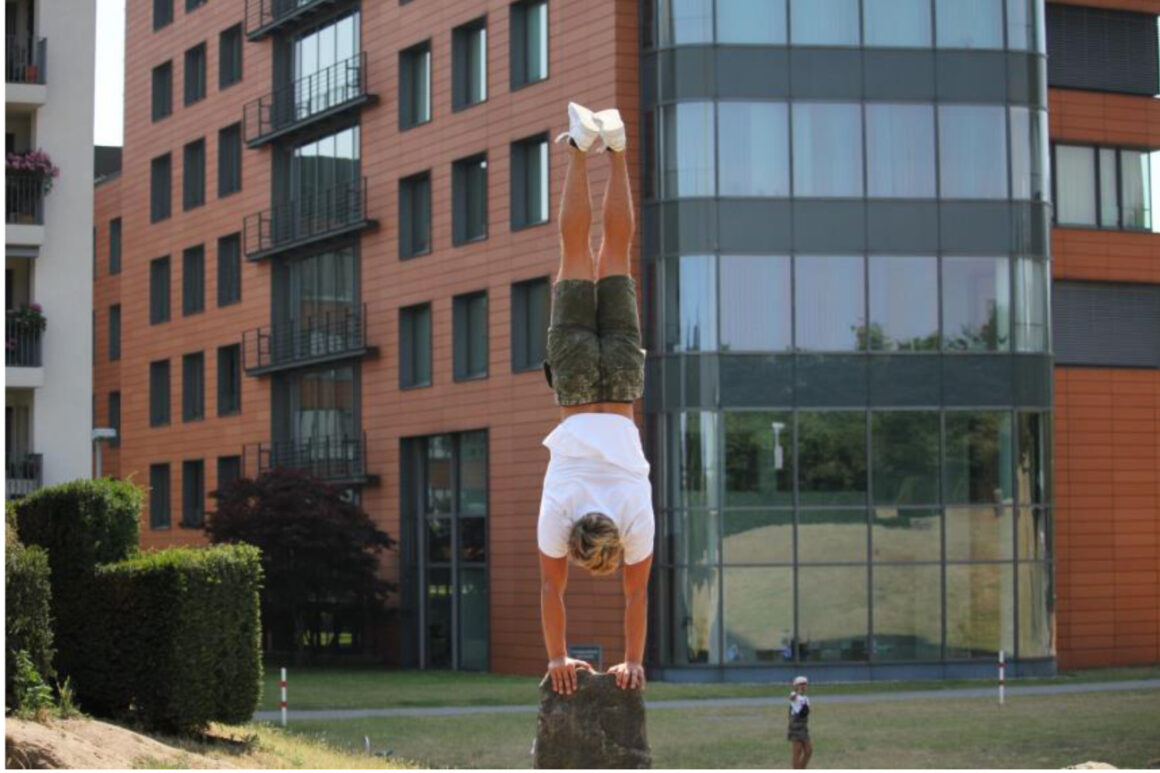Many people swear by calisthenics, and they might have a point.
With many gyms being closed during pandemic, we decided to dive more into calisthenics. Some guys swear by it, some dislike the trend. Let’s check it out.

Photo Credit: Unsplash @pieronigro
Have you ever gotten interested in calisthenics? Well, even if you haven’t been into it before, when all our gyms closed in the wake of lockdown, some of you frantically googled what you could do with your bodyweight and probably stumbled across tons of info on calisthenics. Or, even better, you’ve probably heard of it before reading this.
The term itself comes from ancient Greece. “Kálos” meaning “beauty” and “sthénos” meaning “strength,” when merged, give us the word we can roughly translate as “the beauty of strength.” Calisthenics, in essence, is all about using your body weight and developing strength and flexibility, mostly the kind that’s not possible to achieve through weight training.
Having said that in the beginning, does it mean calisthenics is better than typical weightlifting? The truth is – it depends on what your goals are. Also, they can be combined for great results. Now, we will dive into some pros and cons of calisthenics.
Why Calisthenics is Amazing
- You can train anywhere, anytime–This is probably the most attractive advantage of calisthenics right now. It’s quite a privilege to be able to do your exercises wherever you want, so you don’t have to access any particular equipment. Of course, in some stages, some equipment is desired, but minor compared to other kinds of exercise, especially weight training, where you need more equipment in order to progress.
- You need little or no money to start –Another great advantage of bodyweight training is that you don’t need to buy any expensive equipment, if you need equipment to begin at all. Pull-up bar, rings, or some other monkey bars will be great later on, but you can literally start with nothing.
- You’ll get multiple benefits at once – When you do calisthenics, you don’t only build your strength, even though you will surely get stronger. Bodyweight training improves your overall strength, mobility, flexibility, as well as kinesthetic awareness, and posture. Not only you will get stronger, but as you get more advanced, you will be more in touch with your body. Not to mention that, if you get more advanced in calisthenics (e.g. doing human flag, handstand pushups, etc.), you will be strong enough to pull off some heavy weightlifting. On the other hand, heavy lifter, if he doesn’t do any calisthenics, won’t be able to pull off any of the complex bodyweight exercises.
- It will strengthen your core &improve your posture –Nowadays, in the era of home office and sitting in front of the computer, it’s so easy to get sluggish and sit in front of our PC in the shape of a question mark. However, when you do bodyweight exercises, you will strengthen your core and prevent your muscles from deteriorating which will automatically improve your posture. Bodyweight training surely has long-lasting benefits.
- You won’t get bored with it – There are always so many different exercises to try out and mix up your routine. You can have so much fun with calisthenics and enjoy the overall process, while visibly getting stronger.
What Calisthenics Won’t Do For You
- It won’t give you maximum results in lower-body training – Calisthenics is amazing for building your upper body and strengthening the core. However, we can’t say the same for leg training. There are definitely limitations as no additional weight is used. You can get resilient, strong joints doing shrimp squats, pistol squats, etc., but building the muscle in your legs and glutes is limited.
- It’s difficult to isolate muscle groups–This won’t be an issue for those who want to improve their overall strength and endurance. However, if you are recovering from an injury and need to target specific muscle groups, there lies the drawback of bodyweight training, and where weight training shines through. With weightlifting, it will be rather easy to isolate and target specific muscles if needed.
- You won’t easily track your progress –This is where weightlifting takes one more point. When you work with weight, it’s very easy to track your strength because you can measure it in lbs (or kg) of weight you add. However, with bodyweight exercise, when you’re doing it by yourself, it can be difficult to progress towards more demanding workouts and moves. That’s why it can be difficult to stay motivated when you’re not sure how much you’ve progressed.
- It won’t provide you big muscle mass as easily – When you lift weights, you build overall strength in your muscles by causing micro-tears in them, which further induces hypertrophy (muscle growth). With calisthenics, on the other hand, you can get a very muscular body, but building muscle mass like a bodybuilder will be very hard, if possible at all.

Photo Credit: Unsplash @pedroaraujo74
When Calisthenics Is Taken To Extreme
Yes, there are people who prefer only bodyweight training. However, certain “calisthenics cults” have appeared, and in those groups, people completely disregard other forms of exercise as completely ineffective and inferior, which by all means isn’t true.
Yes, bodyweight training can provide you with amazing results. Also, weightlifting can help you build your body in amazing ways. One does not exclude the other. Here at Radass, we are all about combining, but after all, it all depends on your fitness goals and aspirations.
How many of you in RadSquad have tried bodyweight training? Do any of you strictly stick to weights? How are you exercising during the pandemic? Sound off, we love a good convo.
WTR? (Why’s That Radass?)
Different workout routines and different exercises are going to work differently for each person. But when so many people swear by a particular type of exercise it’s wise to at least try it and see how far one can take it, and what kind of results they can come up with.









1 comment
I truly enjoy reading on this site, it has got good posts. “One should die proudly when it is no longer possible to live proudly.” by Friedrich Wilhelm Nietzsche.